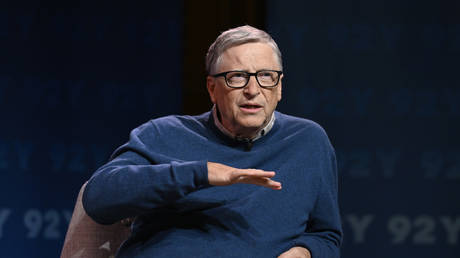
A real philanthropist would abandon Mars dreams for vaccines, the Microsoft mogul says
Microsoft co-founder Bill Gates believes the SpaceX CEO’s self-declared mission to save humanity from extinction by colonizing Mars is not a good use of Elon Musk’s fortune, which would be better spent on goals like mass vaccination to save people’s lives back on Earth.
Gates said he does not consider Musk to be a real philanthropist, while acknowledging in an interview with the BBC released on Friday that some of his endeavors, like the electric vehicle company Tesla, “are having a positive impact.”
“I think some day he will join the ranks of philanthropists using his ingenuity,” Gates added, because “at the end of the day” he can’t possibly spend all of his money on himself, “other than going to Mars a few times, which might cost a little bit.”
Gates argued that there are more immediate and pressing issues facing humanity than a Mars mission, such as mass vaccination. “It’s actually quite expensive to go to Mars,” he said in the interview. “You can buy measles vaccines and save lives for a thousand dollars per life saved. It just kind of grounds you, as in – don’t go to Mars.”
The two billionaires have had tense relations in recent years, and this is not the first time Gates has gone on the offense against the SpaceX creator. In May, media reports claimed that the Bill and Melinda Gates Foundation spent millions to attempt to block Musk from acquiring Twitter.
The new Twitter owner, in turn, accused Gates of hypocrisy. “Sorry but I cannot take your philanthropy on climate change seriously when you have a massive short position on Tesla,” Musk wrote in a leaked private message later confirmed to be real.
Musk has made no secret of his desire for humans to colonize Mars, insisting it’s the only way the species will escape a “mass extinction crisis.” In a 2022 TED interview, Musk outlined his dream of sending thousands of Starship rockets to Mars by the year 2050, calling them “modern Noah’s Arks,” even though the spacecraft is still in its experimental phase.




